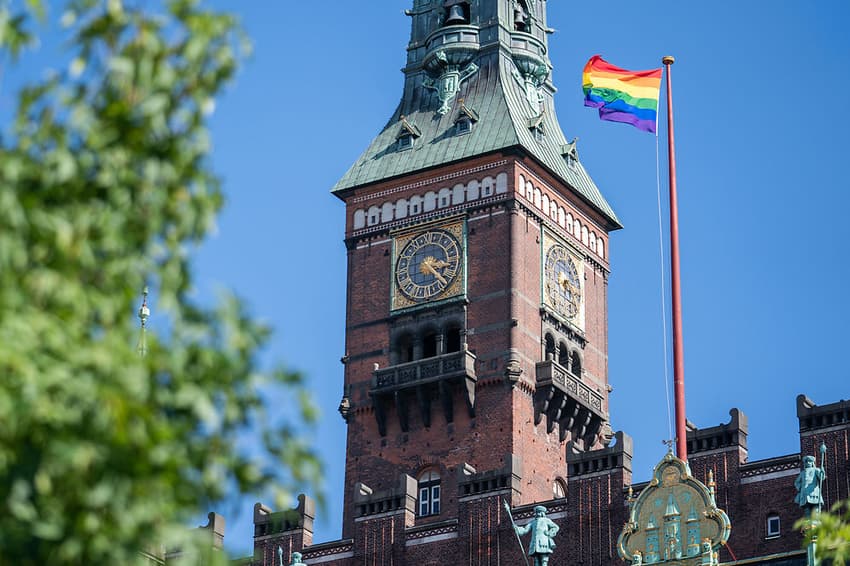Denmark to criminalise hate speech against trans people

The Danish government wants to add new terms to the country’s hate speech laws to protect trans people from discrimination.
The Social Democratic minority government plans to add the terms gender identity (kønsidentitet), gender expression (kønsudtryk) and sex characteristics (kønskarakteristika) to section 266b of the criminal law code – commonly known as the ‘Racism Paragraph’.
Newspaper Kristeligt Dagblad, which was first to report the proposed law change, writes that it would be made with the intention of preventing hate speech against trans people.
The law change would mean that hate speech against trans and intersexual people would be treated as a crime on the same basis as all homophobic and racist speech.
The proposal is supported by left wing parties the Red Green Alliance and Socialist People’s Party, with the Social Liberal party also in support in principle. As such, it has a theoretical parliamentary majority in support.
Denmark’s racism paragraph was originally enacted in 1939 in an effort to prevent antisemitism.
Given the cultural value placed on free speech in Denmark, it has traditionally been interpreted in a way that still allows pointed statements to be made in public debate without these being judged as racist, according to an expert on the law.
READ ALSO: Why Denmark's free speech tradition is not a free pass for Quran burning
“The paragraph works well,” University of Southern Denmark law professor Sten Schaumburg-Müller told Kristeligt Dagblad.
“You have to reach a certain level of offensiveness before statements break the law, and this is out of consideration for free speech,” he explained.
“For example, you would have to say that a particular group are cancerous tumours or rodents that must be exterminated in order for it to be criminal,” the professor elaborated.
Minister for equality Mogens Jensen declined to comment to the newspaper on plans to update the law, but the Social Democratic spokesperson, Lars Aslan Rasmussen, confirmed its intention to prevent hate speech and incitement to criminal activity.
Comments
See Also
The Social Democratic minority government plans to add the terms gender identity (kønsidentitet), gender expression (kønsudtryk) and sex characteristics (kønskarakteristika) to section 266b of the criminal law code – commonly known as the ‘Racism Paragraph’.
Newspaper Kristeligt Dagblad, which was first to report the proposed law change, writes that it would be made with the intention of preventing hate speech against trans people.
The law change would mean that hate speech against trans and intersexual people would be treated as a crime on the same basis as all homophobic and racist speech.
The proposal is supported by left wing parties the Red Green Alliance and Socialist People’s Party, with the Social Liberal party also in support in principle. As such, it has a theoretical parliamentary majority in support.
Denmark’s racism paragraph was originally enacted in 1939 in an effort to prevent antisemitism.
Given the cultural value placed on free speech in Denmark, it has traditionally been interpreted in a way that still allows pointed statements to be made in public debate without these being judged as racist, according to an expert on the law.
READ ALSO: Why Denmark's free speech tradition is not a free pass for Quran burning
“The paragraph works well,” University of Southern Denmark law professor Sten Schaumburg-Müller told Kristeligt Dagblad.
“You have to reach a certain level of offensiveness before statements break the law, and this is out of consideration for free speech,” he explained.
“For example, you would have to say that a particular group are cancerous tumours or rodents that must be exterminated in order for it to be criminal,” the professor elaborated.
Minister for equality Mogens Jensen declined to comment to the newspaper on plans to update the law, but the Social Democratic spokesperson, Lars Aslan Rasmussen, confirmed its intention to prevent hate speech and incitement to criminal activity.
Join the conversation in our comments section below. Share your own views and experience and if you have a question or suggestion for our journalists then email us at [email protected].
Please keep comments civil, constructive and on topic – and make sure to read our terms of use before getting involved.
Please log in here to leave a comment.